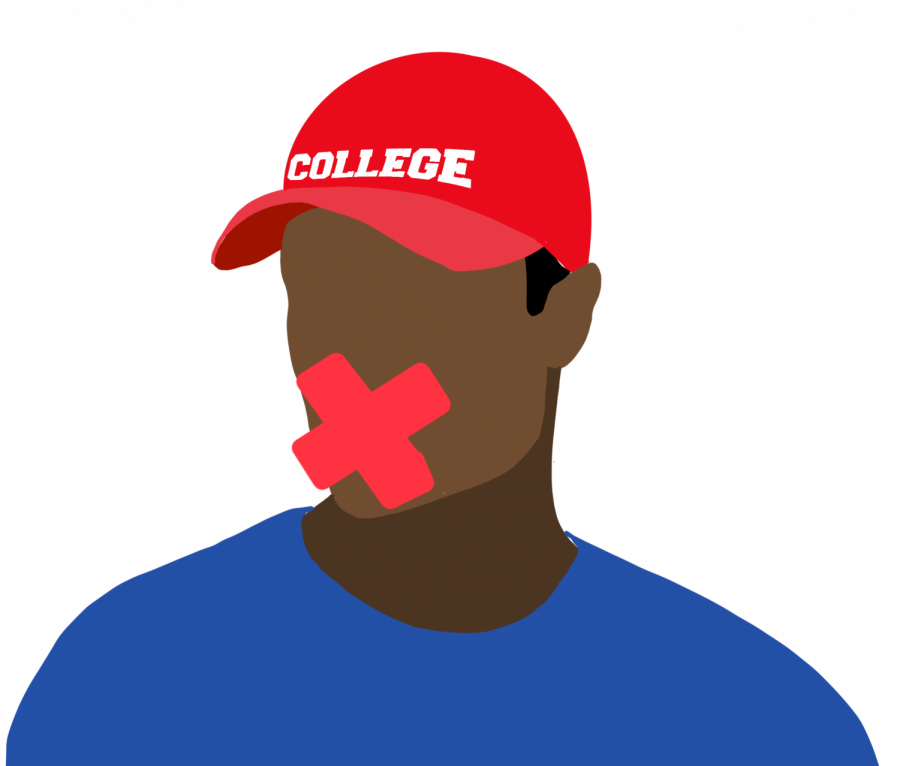Hey Chuck, what does free speech mean, anyway?
October 4, 2019
Free speech on college campuses has until recently meant marginalization. What is it that modern “free speech” activists want?
Last week, Iowa Senator Chuck Grassley wrote an article in the Wall Street Journal decrying the increasing popularity of practices that “indulge students who, when faced with uncomfortable ideas, complain of feeling ‘harmed’ or ‘unsafe.’” This article — and Grassley’s sentiment — follows a long-standing tradition of defending undesirable and hateful speakers under the guise of free expression, while also criticizing student-led protests against these speakers. However, Grassley misses the importance of free speech. We allow free speech and expression as a modern society not to permit hate speech, but to legitimize and platform those who have been marginalized by long-standing and unquestioned institutions, and to stop the political establishment from controlling dialogue which threatens it.
The modern conservative (and sometimes liberal) conception of free speech is a distortion of this ideal, as it asks that we not only give hate a voice but also that we allow for its platform and dissemination. It creates not a “free marketplace of ideas,” but, rather, an ideological hierarchy in which established and correct speech that does not challenge the status quo is favored, while those calling for alternative explanations and understandings of ideas are marginalized since they do not have an adequate platform. A single student would have a hard time challenging the speech of a professor who had abused them because it evokes Grassley’s conception of free speech, which is inherently unequal and favors power over truth. Conservative expressions and ideals of democracy have always been privileged by university institutions, and only in the late 20th and early 21st centuries have students begun to challenge that status quo. So-called free speech advocates are defending a position earned by aiding structures of power rather than engaging and criticizing the institutions they benefit from.
Free speech then, in its most widely accepted sense by American conservatives and liberals, is nothing more than an opportunity for the establishment to perpetuate the marginalization of historically oppressed groups of people. By platforming hateful and marginalizing speech as a legal and moral prerequisite to a modern democracy, we subsequently silence voices with little platform and power. Student protest which attempts to de-platform speakers and members of university institutions is simply an expression that recognizes this cycle and remedies it by accompanying those voices with a demand to change the structures of power. It is time to revolutionize our concepts of free speech on campus by taking a hard look at who the current conception of free speech prioritizes, platforms and enables.
It is imperative that we view the current movement of students challenging the free speech status quo as doing much more than de-platforming old modes of academia, hate speech, and limiting expression — the issue of student protest of traditionally conservative academia also allows for a rejuvenation of academia that challenges core institutions of the West rather than perpetuates it, and allows marginalized voices to be heard. Students do not want universities to engage in allowing speech which does not recognize their existence and their inherent value. Subjects on race, gender, sexuality and class that were once never talked about are now being openly discussed. This is an expansion of expression, and it’s worth more than the two cents of Grassley on the so-called “victimization” of the poor, privileged academic world.






















Anonymous • Oct 9, 2019 at 3:22 pm
“Congress shall make no law respecting an establishment of religion, or prohibiting the free exercise thereof; or abridging the freedom of speech, or of the press; or the right of the people peaceably to assemble, and to petition the Government for a redress of grievances.”